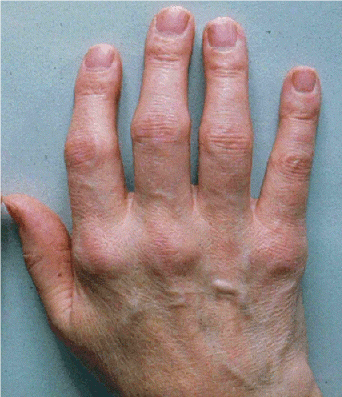Inflammatory rheumatic disorders
Rheumatoid Arthritis (RA) is the commonest ‘inflammatory’ arthritis and may affect 1-2% of the population. It can come on from any age after 16, and is commoner in women, but the sex-distribution equals later in life. It usually starts slowly, with morning stiffness, swelling and pain in the joints. Typically, these are the knuckles, wrists, elbows, shoulders, knees, ankle and toes. Not all joints may be affected at the same time.
The ‘Seronegative Arthritis Diseases (Psoriatic, Reactive, Colitis-related and Ankylosing Spondylitis’). The management of these conditions is similar to that of Rheumatoid Arthritis, with some drugs being licensed for one type of disease and not another. The general principles of arthritis management also hold true to these conditions (exercise, weight loss and a healthy balanced diet etc.)
The cause of RA is unknown, but there is abundant evidence that the immune system plays a key role. Hence, most medication is aimed at ‘re-setting’ the immune system to make it less likely to cause inflammation in the joint, which leads to irreversible joint damage if not controlled.
There are now numerous different drugs for the treatment of RA, which target different arms of the immune system to bring about a resolution of the symptoms of the disease and prevent long-term joint damage. Additionally, physical complementary therapies have an important role in the overall, holistic, management of the disease.
The ‘Seronegative Arthritis Diseases (Psoriatic, Reactive, Colitis-related and Ankylosing Spondylitis’). The management of these conditions is similar to that of Rheumatoid Arthritis, with some drugs being licensed for one type of disease and not another. The general principles of arthritis management also hold true to these conditions (exercise, weight loss and a healthy balanced diet etc.)
